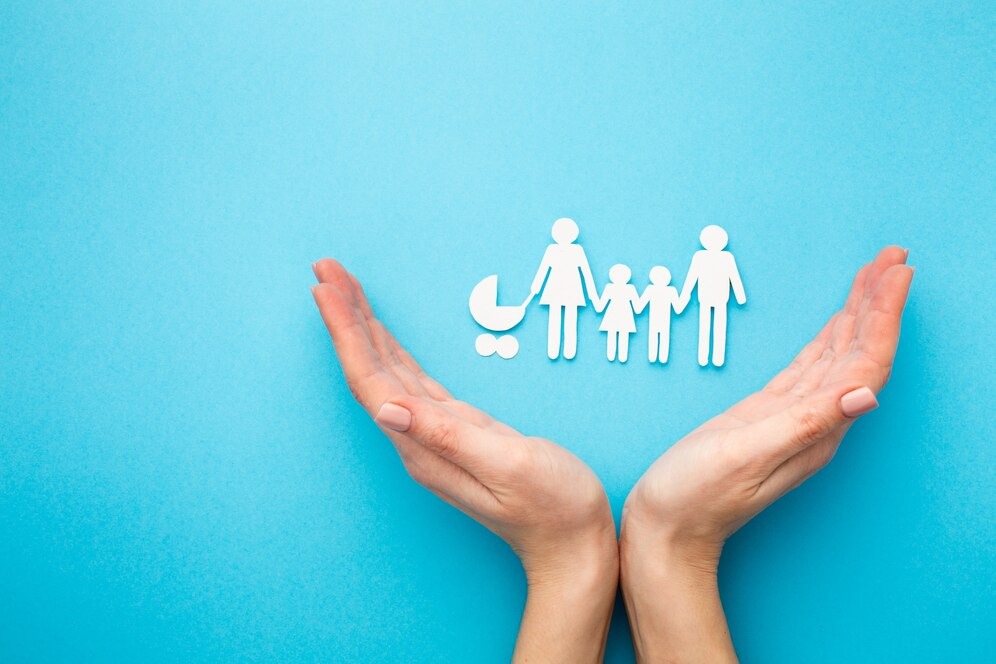
- toon
- 0 Comment(s)
occupational insurance- olinsure
In the ultramodern business world, securing your workers and your business from implicit pitfalls is pivotal. Occupational insurance plays a significant part in furnishing this protection, icing that both employers and workers are covered in case of work-related injuries, accidents, or claims. Let’s dive into the details of occupational insurance, its significance, and how it can profit everyone involved.
What’s Occupational Insurance?
Occupational insurance, also known as plant insurance, is a broad term that encompasses colorful types of insurance programs designed to cover both employers and workers from the fiscal consequences of work-related incidents. These programs generally cover medical charges, lost stipends, legal freights, and other costs associated with plant injuries, ails, and arrears.
Basic Concept
At its core, occupational insurance aims to alleviate the fiscal burden that comes with plant accidents and injuries. By having the right insurance in place, businesses can insure that their workers receive necessary medical care and compensation, while also guarding themselves from implicit suits and fiscal losses.
Types of Occupational Insurance
There are several types of occupational insurance, each serving a specific purpose
Workers’ Compensation Insurance
General Liability Insurance
Professional Liability Insurance
Why is Occupational Insurance Important?
Protection for workers
For workers, occupational insurance provides peace of mind knowing that if they get injured or fall ill due to their job, they will admit fiscal support and medical care. This protection is pivotal for maintaining a healthy and motivated pool.
Protection for Employers
For employers, having occupational insurance means they’re shielded from the potentially crippling fiscal impact of hand claims. It also helps maintain a positive working terrain and supports compliance with legal conditions.
Types of Occupational Insurance
Workers’ Compensation Insurance Overview Workers’ compensation insurance is an obligatory policy in numerous regions. It covers medical charges and lost stipend for workers who suffer work-related injuries or ails.
Benefits
Medical Coverage Pays for medical treatment and recuperation.
pay envelope relief Provides income relief for workers unfit to work due to injury.
Death Benefits Offers compensation to dependents in case of a work-related death.
Who Needs It?
utmost businesses with workers are needed to carry workers’ compensation insurance. This ensures that all workers are defended anyhow of the nature of their job.
General Liability Insurance
Overview General liability insurance protects businesses from fiscal losses performing to claims of injury, property damage, and other arrears. Benefits Bodily Injury Coverage Covers costs if someone is injured on your business demesne.
Property Damage Coverage Pays for damages to third-party property.
Legal freights Cover legal charges related to covered claims.
Who Needs It?
Any business that interacts with guests, guests, or the public should have general liability insurance. This includes retail stores, cafes, and service providers. Professional Liability Insurance Overview Also known as crimes and deletions( E&O) insurance, professional liability insurance covers claims related to professional miscalculations or negligence.
Benefits
Error Coverage Protects against claims of miscalculations in professional services.
Negligence Coverage Covers legal defense costs if indicted of negligence.
Fiscal loss Coverage Pays for fiscal losses suffered by guests due to your services.
Comparing programs
Once you understand your requirements, compare different insurance programs. Look at content limits, rejections, and decorations to find the stylish fit for your business. Consulting with Insurance Experts Consulting with an insurance broker or expert can help you navigate the complications of occupational insurance. They can give acclimatized advice and help you find the most suitable content. Cost of Occupational Insurance Factors Affecting Cost Several factors impact the cost of occupational insurance, including the type of business, number of workers, position, and claims history.
Average Cost for Different Types
Workers’ Compensation Insurance generally costs between$0.75 and$2.74 per 100 of payroll.
General Liability Insurance Small businesses might pay between 400 and$ 600 annually.
Professional Liability Insurance Costs can range from$ 500 to$ 2,500 per time, depending on the profession and content limits.
Benefits of Occupational Insurance for Workers
Financial Security Occupational insurance ensures that workers are financially supported if they’re unfit to work due to injury or illness. This fiscal security can be pivotal for their well-being and recovery. Medical Coverage Employees admit content for medical charges, including treatment, surgery, and recuperation, icing they get the care they need without fiscal stress.
Benefits of Occupational Insurance for Employers
Legal Protection By having occupational insurance, employers are defended from suits and legal claims related to plant injuries and accidents. This legal protection is vital for securing the business’s fiscal health. Business durability
Insurance helps businesses maintain operations indeed in the face of unanticipated incidents. It provides the fiscal support demanded to address claims and continue performing easily.
Common Myths about Occupational Insurance
Mythvs. Reality
Myth Occupational insurance is too precious for small businesses.
Reality colorful affordable options are available, and the cost is frequently lower than the eventuality charges of a claim.
Myth Only high-threat diligence needs occupational insurance.
Reality All businesses, anyhow of assiduity, face some position of threat and can profit from content.
How to train a Claim
Step- by- Step Guide
Report the Incident Notify your insurance provider incontinently after the incident.
Document Everything Keep detailed records of the incident, including prints, substantiation statements, and medical reports.
Submit Claim Form Fill out and submit the claim form handed in by your insurer.
Follow Up Stay in touch with your insurance provider to track the status of your claim.
Case Studies
Real-life exemplifications illustration 1 A construction worker who suffered a fall entered full medical content and pay envelope relief through workers’ compensation insurance, allowing him to recover without fiscal strain. illustration 2 A small business proprietor was defended from action after a client slipped and fell in their store, thanks to general liability insurance.
Conclusion
Occupational insurance is an essential aspect of running a safe and successful business. It protects both workers and employers from the fiscal impacts of plant accidents and injuries. By understanding the different types of occupational insurance and how to choose the right content, businesses can insure a secure and biddable working terrain.
FAQs
What’s the difference between general liability and professional liability insurance?
General liability insurance covers claims of fleshly injury, property damage, and other general pitfalls, while professional liability insurance covers claims related to professional crimes, negligence, and malpractice.
How important does occupational insurance cost?
The cost varies depending on factors similar to the type of business, number of workers, and content demanded. On average, workers’ compensation costs between$0.75 and$2.74 per 100 of payroll, while general liability insurance can bring between 400 and$ 600 annually.
Do I need occupational insurance if I work from home?
Yes, indeed home- home-grounded businesses face pitfalls similar to customer injuries or professional liability claims. It’s important to have applicable content grounded on the nature of your work.
Can occupational insurance programs be customized?
Yes, numerous insurance providers offer customizable programs to fit the specific requirements of your business. Consult with an insurance expert to knit the content to your conditions.
What happens if my claim is denied?
still, you can appeal the decision by furnishing fresh attestation and substantiation, If your claim is denied. Consulting with your insurance provider or a legal professional can help you navigate the appeal process




